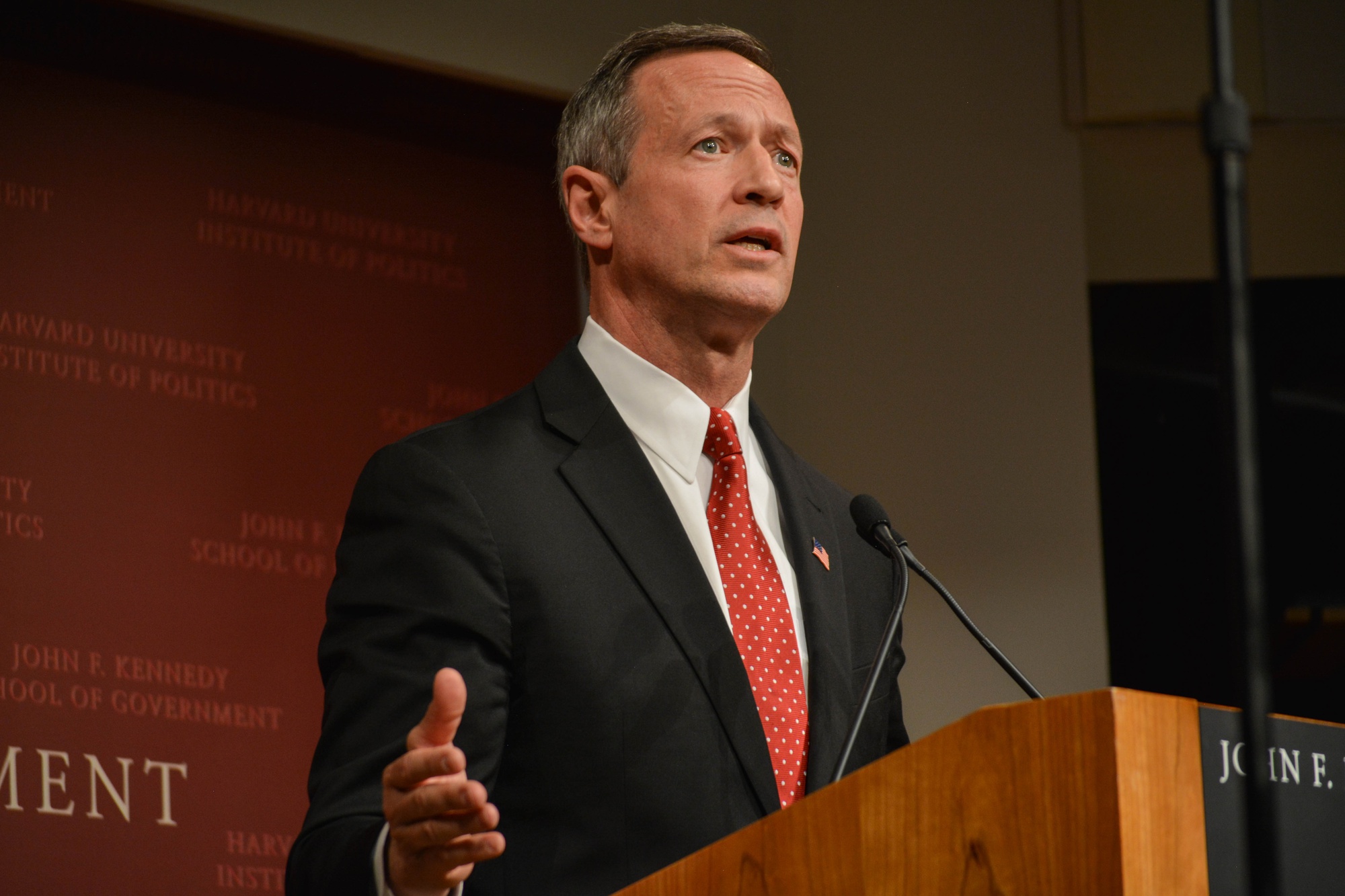
News
Harvard Grad Union Agrees To Bargain Without Ground Rules

News
Harvard Chabad Petitions to Change City Zoning Laws

News
Kestenbaum Files Opposition to Harvard’s Request for Documents

News
Harvard Agrees to a 1-Year $6 Million PILOT Agreement With the City of Cambridge

News
HUA Election Will Feature No Referenda or Survey Questions
O’Malley Discusses Possible Presidential Run, Economic Revitalization

Former Governor of Maryland Martin J. O’Malley spoke at the Institute of Politics on Thursday about the choices and policies needed to build a more prosperous American economy and a stronger middle class.
The John F. Kennedy Jr. Forum event, moderated by IOP Director Margaret A. “Maggie” Williams, came less than three months after the end of O’Malley’s second term as governor. O’Malley, who is widely viewed as a possible Democratic candidate for the 2016 presidential election, said on Thursday that he is “strongly considering” a presidential campaign and will announce any plans by the end of May.

O’Malley opened his address by contrasting what he called America’s historical “inclusive theory of growth” focused on extending the American dream to “ever-widening circles of our people” with the inequitable capital accumulation and concentration of wealth that he said resulted from Ronald Reagan’s “supply-side economics.”
“From 1947 to 1979, every income group of households in the United States, from the poorest to the richest, were able to increase their earnings by at least 100% in real, inflation-adjusted dollars over that forty year period of time,” he said. “All of that progress was built on hard work, extending economic participation, and policy choices that made sure that wages [increased with] productivity.”
O’Malley pointed to the recent financial crisis as proof of the unreliability and inequity of the theories driving the modern American economic system and called for a restoration of “a human purpose to our American economy.” O’Malley presented a five-part plan for economic change that would focus on wage policies, public investments, financial accountability, better trade deals, and expanded Social Security.
O’Malley said he supported a $15 minimum wage and the indexation of the minimum wage for inflation, as well as reduced barriers to collective bargaining and immigration reform, which he called an “economic imperative for our entire country.”
“We must recognize that policies that are good for women and families like paid leave, and stay-at-home affordable childcare, are also good for our national economy and for economic growth—because [when] women succeed, our American economy also succeeds,” he said.
O’Malley also said that in contrast to many of the nation’s political leaders, he wants to expand the Social Security program, arguing that “we cannot grow our economy if we resign a whole generation of our senior citizens to live in their golden years in poverty.”
He proposed funding the expansion by raising the earnings cap on payroll taxes, passing immigration reform to allow an additional 11 million people to contribute to the program, and enacting progressive wage policies.
“We are Americans, and we make our own destiny,” O’Malley concluded. “We are standing at the threshold of a new era of American progress—and we need only the will and the leadership to move forward to the future we prefer.”
—Staff writer Luca F. Schroeder can be reached at luca.schroeder@thecrimson.com. Follow him on Twitter @lucaschroeder.
Want to keep up with breaking news? Subscribe to our email newsletter.
Most Read
- Harvard’s Hyperfixation on Israel Is Academically Unserious
- Harvard Police Union Overwhelmingly Votes No Confidence in HUPD Chief Clay
- Trump Administration Conditions Harvard’s Funding on Eliminating DEI, Restricting Protests
- Facing Trump’s Ultimatum, Harvard Has No Easy Choices
- House Door Boxes Elicit Backlash Over Conservative Student Publication
